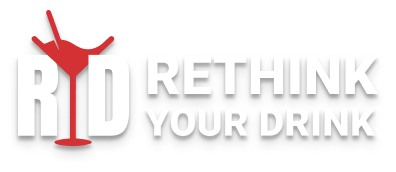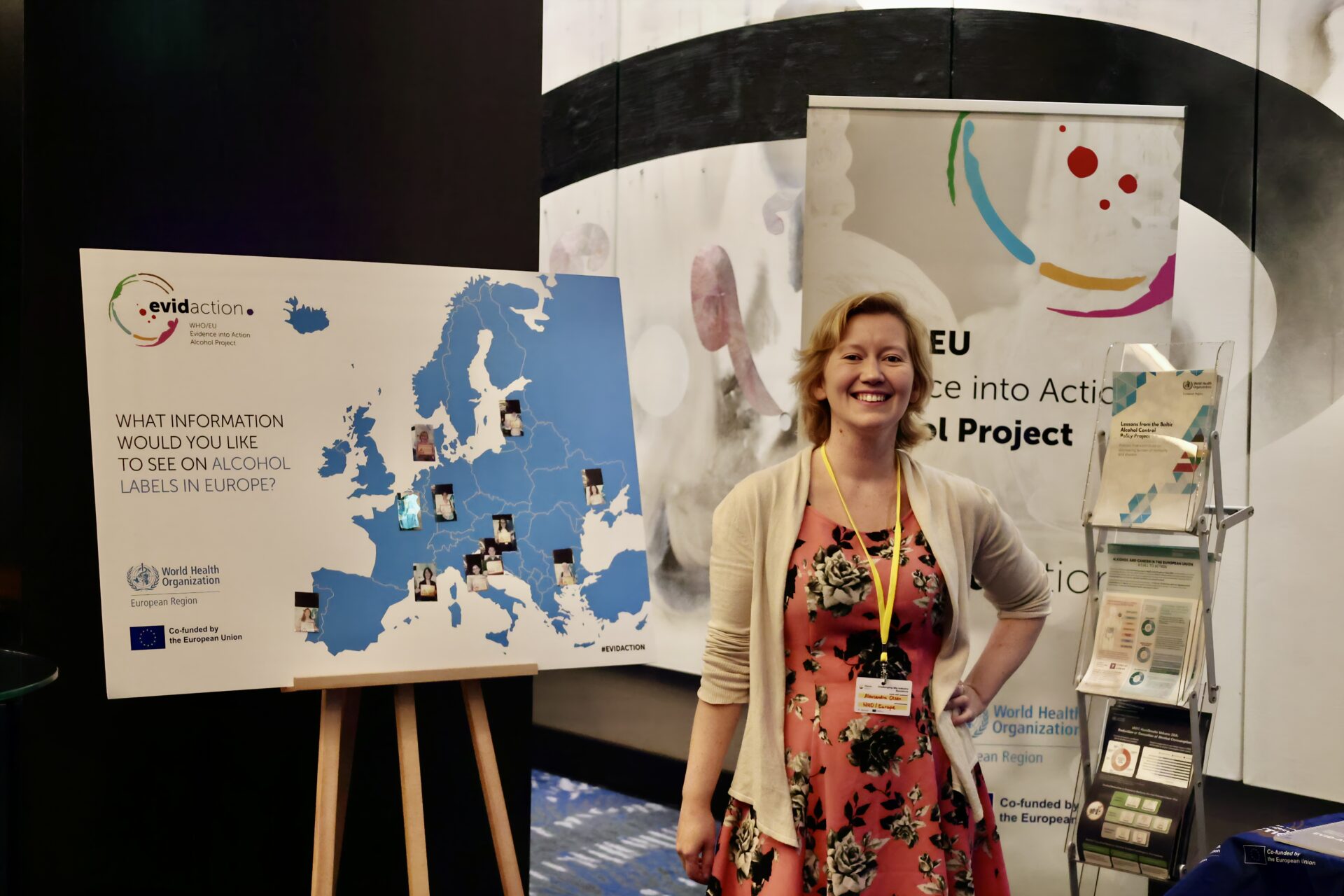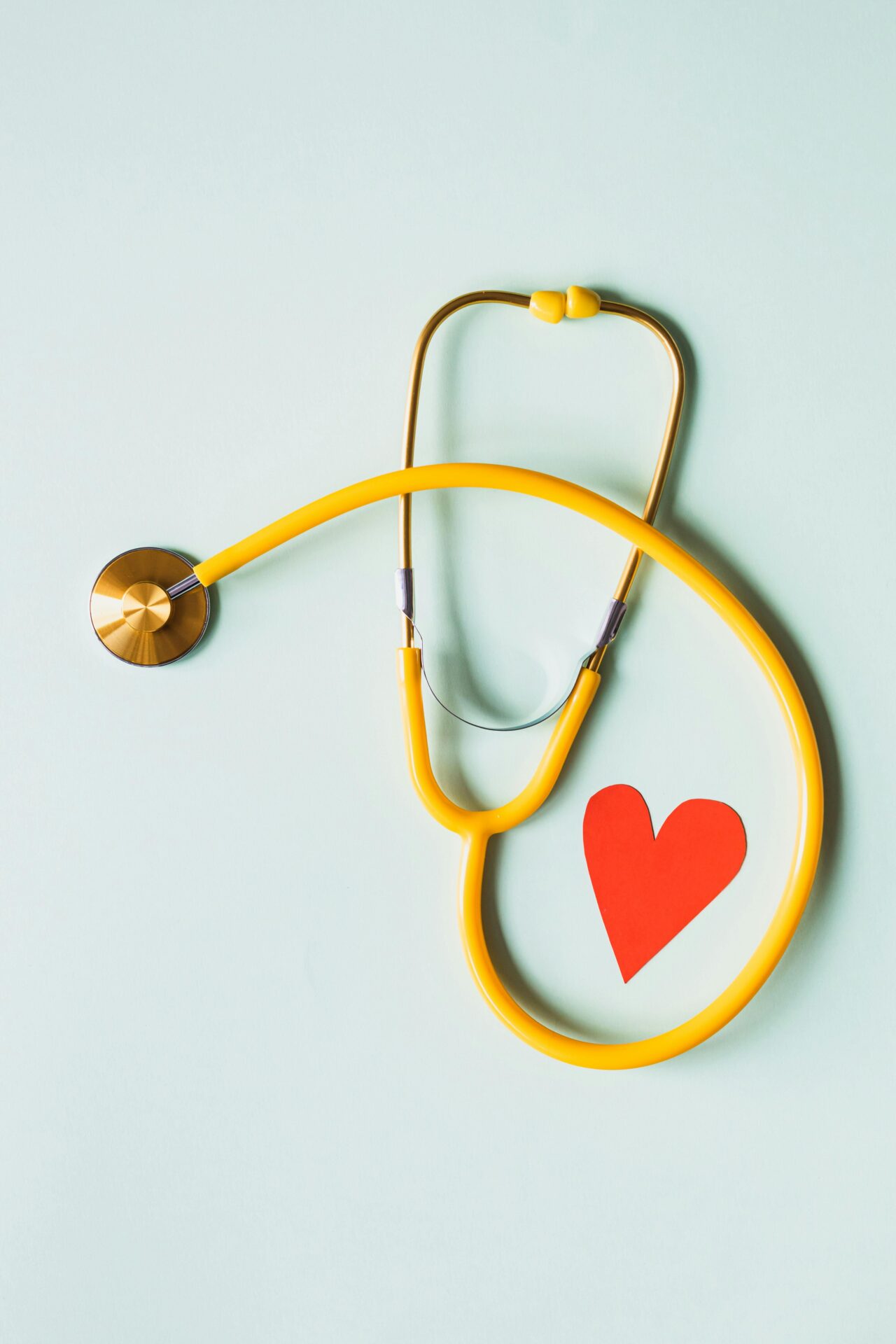As a communications officer at WHO/Europe, Aleksandra is responsible for communications planning and implementation of communications activities, including public health campaigns, publication launches, communications support for high-level conferences, social media management, media relations and more. Currently, she primarily supports communications on alcohol, as part of the WHO/Europe initiative on non-communicable diseases (NCDs) such as cancer, diabetes, CVD, obesity and their risk factors: alcohol and tobacco, physical inactivity and nutrition. Opinions here are her own and do not necessarily reflect the official position of WHO.
What is your personal attitude to alcohol?
I have many stories about alcohol. Family stories, close relatives, personal stories. Most of these are sad, if not tragic. Despite all these stories and examples, I still had to try to figure out that alcohol was bad for me. If I could go back today and re-do my youth, I don’t think I would waste time and energy on alcohol. Today, I am not abstinent, but I drink alcohol very rarely.
What health risk associated with alcohol did you realize that motivated you to reduce alcohol consumption?
I didn’t know about the cancer risks from alcohol before I joined WHO, but I think it was understanding the effects on mental health and general health that really motivated me, as well as understanding the impact that the substance has on people globally, for example that so many young (and old) people in Europe lose their lives because of drownings, injuries, falls, violence, suicides – all linked to alcohol. There are many more than we imagine. Approximately 800 000 deaths are caused by alcohol in the WHO European Region every year. For me this was a bit like taking a step back, seeing a society under the effect of a legal drug. It’s a scary image.
What do you think is stopping people from becoming more concerned about the health impacts of alcohol?
The extent to which alcohol is normalized in society and that it is low on political priorities stops many people from thinking about it, there are more pressing issues. Many of the health effects are either not well known or not well understood.
What are the most common myths about alcohol that you have come across and how do you debunk them?
‘A glass of wine per day is good for your health’ is a classic. The truth is the majority of deaths due to alcohol in Europe are from cardiovascular diseases, heart diseases. There is even a heart disease called alcoholic cardiomyopathy, which would not exist without alcohol.
How do you think increasing health literacy around alcohol can influence people’s behaviour?
Knowledge is power. We can make healthy and unhealthy choices in our lives and this is completely normal. But it’s important to make informed choices, which can only be done by increasing health literacy. Behavior is complex and has many barriers and drivers. Environments where alcohol is too cheap, too available and marketed everywhere, push us to consume alcohol, but if we have this knowledge, health literacy is a factor that can shape and change our behaviour. This is exactly what the ongoing campaign “Redefine Alcohol” is about – empowering people with knowledge about alcohol to reflect and make informed choices.
Can you share specific examples of how reducing alcohol positively affects your physical and mental health?
Sleep quality and energy levels make a really big difference, especially as you get older. You may not feel it on a daily basis, but when you meet a person with a hangover, you remember immediately that it’s worth it.
What steps should a person who realises they have a problem with alcohol take?
If a person realises that they have a problem with alcohol, that is already a big thing – admitting that to yourself is not easy! Telling someone is a good start – it could be a close friend, a loved one, a therapist, having support is a really great thing. Normally, going to your doctor is a good step, as they would be able to offer guidance and tell you about options that are available.
There are options available and many people are going through this, but it’s not often talked about, so it can seem daunting. Sometimes there are easy steps and routines that can be put in place, sometimes it can require a more complex approach – it’s a different journey for everyone. The main thing is to reach out. This is even true if you are not sure whether you have a problem, just want to ‘check if you’re drinking too much’ – having a chat with your doctor will give a lot of clarity about this.
What advice would you give to people who want to reduce or completely eliminate alcohol use from their lives?
I would say give it a try and stick with it for a while, find a routine that works. Every second weekend alcohol-free? Great! Walk in the park instead of the pub on Fridays? Excellent! Only non-alcoholic beverages at family gatherings with children? I find that it’s even easier when there are others that want to try reducing or quitting alcohol with you, then it can be a fun challenge. If you do experience that it is very difficult to reduce or cut alcohol, or experience withdrawal symptoms though, you need to get guidance from your doctor.
Do you think educational campaigns and programs about alcohol are sufficient? What improvements would you suggest?
Educational campaigns and programs about alcohol are not enough to change behavior, though they can increase knowledge and shape attitudes. When planning these initiatives, it’s important to also look at the environments there are in the country – how cheap is alcohol, is it sold in normal shops, are there alcohol ads on TV, buses and social media. All these factors will influence how successful a campaign or programme will be. Ideally, pricing policies, such as increasing taxation of alcohol and availability measures, such as minimum drinking age, sales hours of alcohol at shops, etc, should be in place at the same time.
What advice do you have for handling social situations where alcohol is a normal part, when someone has decided to abstinent?
I used to get asked if I was pregnant all the time, people who choose not to drink can often be questioned or stigmatized. This can be very unpleasant, but this doesn’t happen so much to me anymore. It’s great to see that awareness of how inappropriate it is to ask why you are not drinking alcohol is increasing. Now if I am not drinking, I just say I don’t drink, or I choose not to drink. Sometimes I tell people about some of the crazy facts I’ve learnt about alcohol, like that it damages your DNA. Who doesn’t love an awkward party conversation like that? Just kidding – most people are curious to learn even though their first reaction can be irritation.
What would you like young people to know about alcohol and its effects on health?
I would like young people to know that the feeling of confidence or calm that alcohol seems to give is false, it’s a smoke-screen. It’s unfair that young people are so bombarded with alcohol adverts, parent stories of ‘the good old days’ and even Olympic champions on Threads talking about their wild alcohol adventures, and have to somehow make ‘the healthy choice’. But if you can think of drinking alcohol as a game, most will get out of it unharmed, but for some, life can end very abruptly, some will never be able to give it up and develop chronic illness, some might even develop cancer. It’s not a small price to pay for fun, it’s a risk you need to be aware of and act accordingly, making your own choices, informed choices.
How do you think social pressure to consume alcohol can be effectively combated?
Through community – finding like-minded people is great and more young people are saying ‘no’ to alcohol or reducing their alcohol consumption. Parents are important role models for this as well, both in terms of talking to their kids about social pressure, but also by demonstrating it in their own behavior.
What do you think is the most important step to improve health literacy about alcohol in society?
I think there is much to be done – looking at harmful effects of alcohol beyond ‘just a hangover’ or liver disease, showing that harms and deaths from alcohol are not just among those who drink very heavily, myth-busting about things like heart health and mental health, and calling out industry tactics that normalize and glamourize alcohol consumption. These are some of the things we try to do it the “Redefine Alcohol” campaign too. Check it out here: Redefining alcohol for a healthier, safer, and happier Europe.




